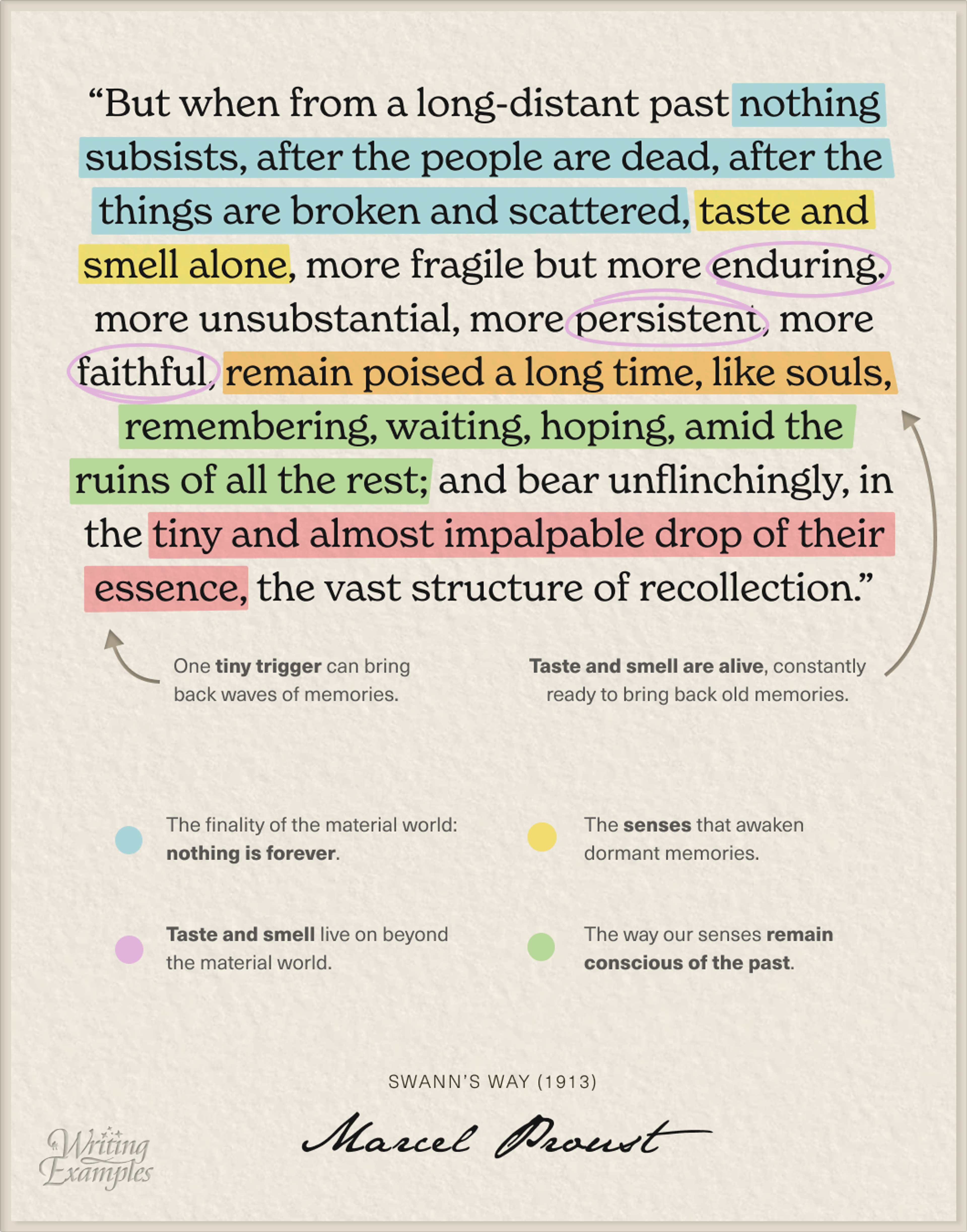HOW TO
DescribeMemory
By
Sherry Ning


ne whiff of a certain perfume can transport you back to that summer you fell in love. One chorus can instantly remind you of that road trip where you sang your heart out in the backseat. One inside joke can bring you back to that time you laughed until you cried. One sight of a special person can make you relive a moment in the city you thought you’d never leave.
You might think memory is something under your control, obediently ushered behind strong fortresses and filed away for safekeeping, but Proust tells the truth: memory is fragile, intrusive, and can melt away years of repression or therapy with just one little poke to your senses. Memory can ambush you when you least expect it.
Memory, a la Proust, is brought back to life by the five senses. When describing memory, indulge in every detail and write about the senses that bring back those memories. Use long, flowing sentences to reflect the expansive, layered nature of memory, and contrast minuteness with immensity, because "a drop" of the senses can bear "the vast structure" of what we think we’ve forgotten.
Read More
Write like the Greats
New Writing Examples, right in your inbox.
“Beautiful, playful, and high-quality. Kudos.”
Clayton
from Missouri, USA



